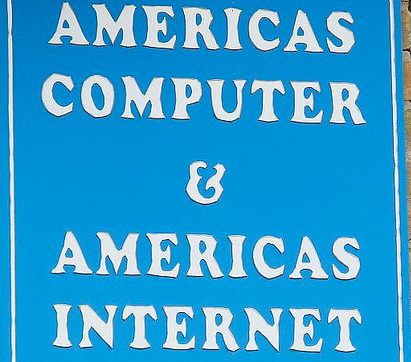Former FCC Commissioner: FCC Needs To Reclassify Broadband ISPs, Save Net Neutrality

(Steve)
The regulation guaranteeing net neutrality–the rule that an internet service provider can’t give preferential treatment to one kind of content over another–went belly up earlier this month when an appeals court struck it down.
The decision against net neutrality has had activists and businesses alike calling on the FCC to fix the classification issue that led to the rule being overturned. And now, even a former FCC commissioner is challenging the agency to fix a decade-old mistake and restore the rule.
Michael Copps was a commissioner at the FCC from 2001 through 2011. In a blog post, Copps is calling on the FCC to reclassify broadband service providers as common carriers.
The common carrier issue is at the root of the ruling that overturned net neutrality. Years ago, the FCC basically had the option to classify broadband internet service from cable companies as either infrastructure or content. Had it been considered infrastructure, it would be subject to the non-discrimination regulations that apply to common carriers. Because such companies are classified as information-providing services, however, they are not subject to those rules.
Copps wastes no words urging the FCC to reclassify broadband providers as “Title II,” meaning the infrastructure side, as soon as possible:
The time is now for the FCC to classify broadband as Title II. Without this step, we are playing fast-and-loose with the most opportunity-creating technology in all of communications history. Without this step, we are guaranteeing an Internet future of toll-booths, gatekeepers and preferential carriage. Without this step, we stifle innovation, put consumers under the thumb of special interests, and pull the props from under the kind of rich civic dialogue that only open and non-discriminatory communications can provide.
Of course, as Copps observes, simple and easy are not the same thing. Reclassifying broadband ISPs is a simple solution, but unlikely to be an easy one. And yet, Copps notes, it would likely be far more feasible than in any way trying to revamp the law that currently governs internet service providers, the Telecommunications Act of 1996. “Finding a new correlation of interests that can come together to forge the Communications Act of 2015 or 2020 would be even more challenging than the jockeying that gave birth to the current law,” Copps writes. He also defends the existing law, adding:
[S]ince the power of money has grown exponentially even since 1996, any proposed legislation that actually advanced would likely be measurably worse than the current law. As the world races ahead, we have a duty to make the best possible use of the laws we have in order to achieve the ongoing goals Congress laid out. These remain powerful instruments. A statute that invokes “the public interest” over 100 times; that highlights universality of service, competition, and consumer protection; and that underlines the necessity for media that informs communities and engages citizens cannot be all bad.
Indeed, for all the problems and flaws, the internet and fast, reliable access to it are clearly a public good–and one that most of us can no longer imagine living without.
For the moment, companies like Verizon and Comcast are saying that they don’t have plans to alter consumers’ access to various services, and despite the rule change there is something of a standoff happening, where nobody, as yet, is the first to blink. But the moment of pause seems unlikely to last forever.
Copps is right: money talks. If the FCC takes no action, consumers will ultimately end up the losers.
The Buck Stops at the FCC [Benton Foundation via Ars Technica]
Want more consumer news? Visit our parent organization, Consumer Reports, for the latest on scams, recalls, and other consumer issues.

